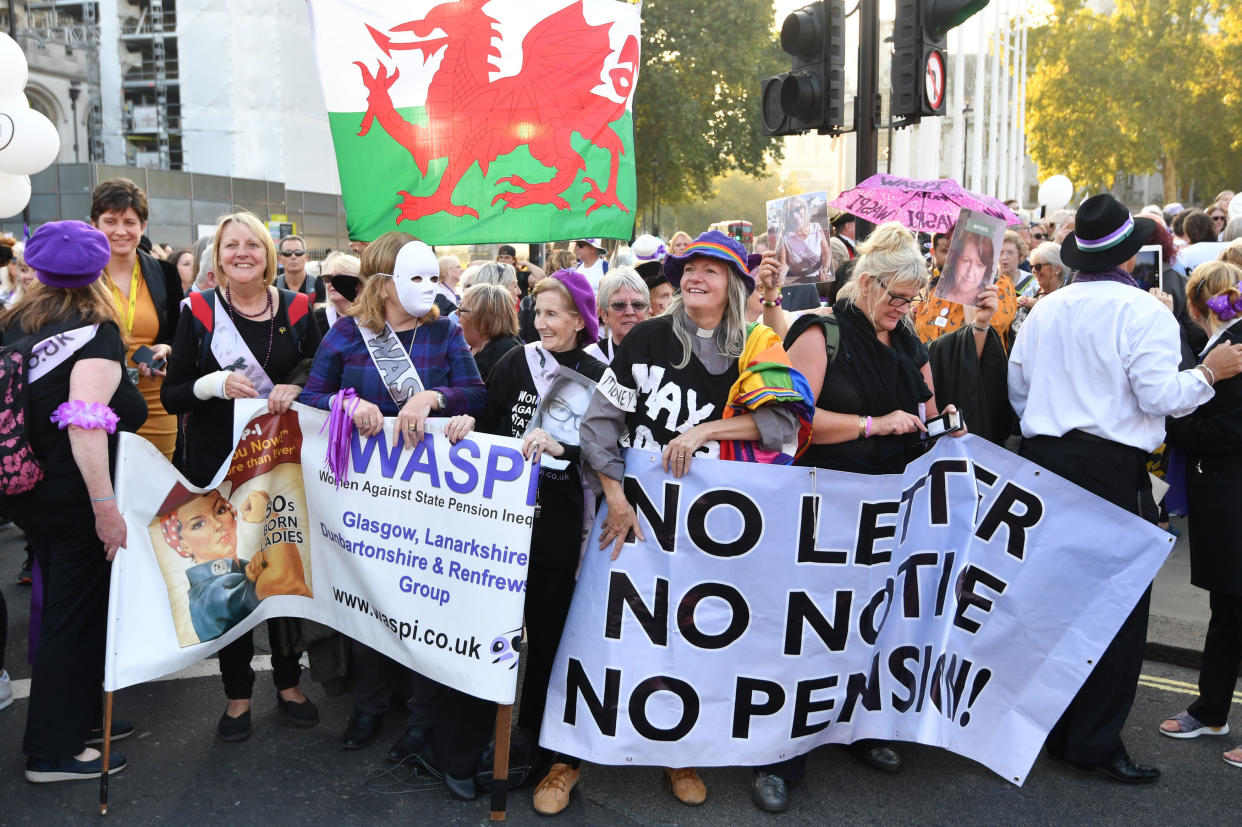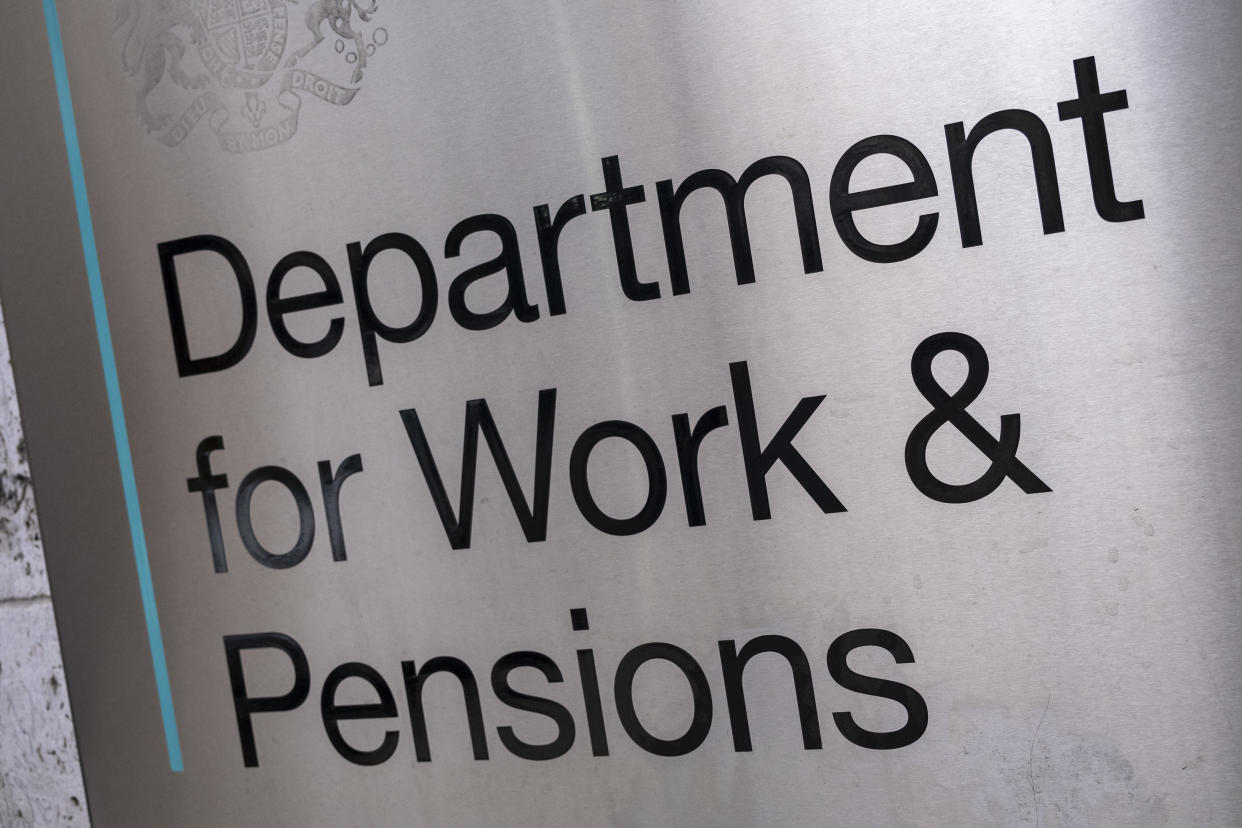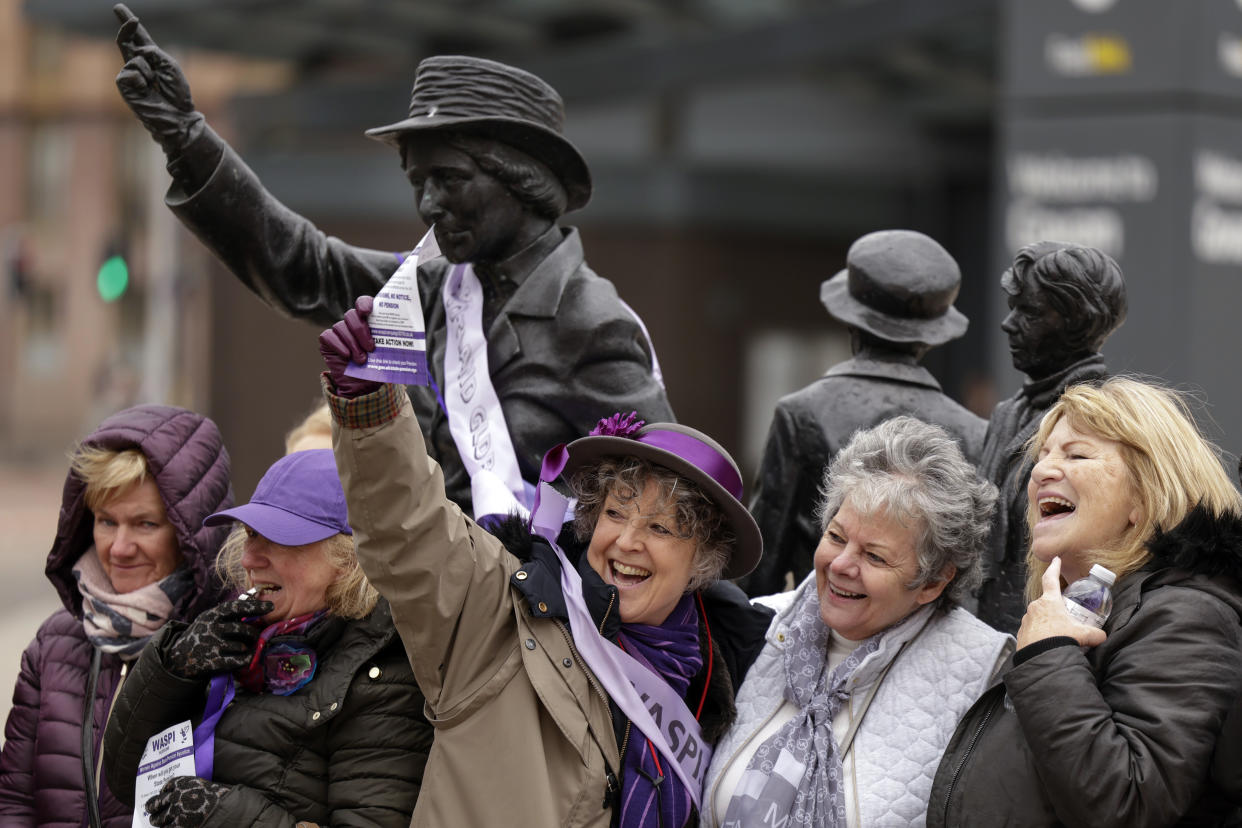Everything we know about pension compensation for women failed by state changes

Chancellor Jeremy Hunt has refused to commit to compensation for women hit by changes to state pension eligibility.
It follows accusations that the government failed to adequately inform those born in the 1950s about an increase in the entitlement age.
A long-awaited report by the Parliamentary and Health Service Ombudsman (PHSO) found changes to the state pension age were not communicated adequately and those affected should receive an apology and compensation, potentially totalling billions of pounds.
Speaking to broadcasters on Sunday, Hunt denied delaying this decision for a future administration to deal with – as Labour enjoys a sustained double-digit lead in opinion polls ahead of this year's election.
He said the issue highlighted by the Women Against State Pension Inequality (Waspi) campaign was "genuinely more complicated" than others in which compensation has been promised, such as the infected blood disaster and the Post Office Horizon scandal.
Here, Yahoo News UK sets out everything we know about pension compensation for women failed by state changes.
What is happening now?
This week, the PHSO published a report finding the government failed to communicate changes to women's state pension age.
It said the failures, which may have impacted thousands of women, mean the Department for Work and Pensions (DWP) should apologise and pay those affected compensation of up to £2,950.
The ombudsman said the DWP has not acknowledged its failings nor put things right for those affected.
PHSO chief executive Rebecca Hilsenrath said: "This is unacceptable. The department must do the right thing and it must be held to account for failure to do so. Complainants should not have to wait and see whether DWP will take action to rectify its failings.
"Given the significant concerns we have that it will fail to act on our findings, and given the need to make things right for the affected women as soon as possible, we have proactively asked Parliament to intervene and hold the department to account.
"Parliament now needs to act swiftly, and make sure a compensation scheme is established. We think this will provide women with the quickest route to remedy."
The PHSO's report also said it recognised "the very significant cost to taxpayers of compensating all women affected by DWP’s maladministration". It would involve spending between £3.5bn and £10.5bn.
The history of pension changes
The 1995 Pensions Act and subsequent legislation raised the state pension age for women born on or after 6 April 1950, so it would match the retirement age for men, which was 65 as opposed to 60.
The original aim was to bring in changes over a 10-year period but this was sped up in 2011.
Campaigners say women weren't properly informed about the changes so could not prepare or make proper arrangements for their finances, and lost opportunities to make informed decisions about their money.
The ombudsman investigated complaints that since 1995, the DWP had failed to provide accurate, adequate and timely information about areas of state pension reform.
In July 2021, the first stage of its investigation found failings in the way the DWP communicated changes to women’s state pension age.

What do campaigners want?
Waspi campaigners said they are "watching and waiting" for parties which will promise "a proper compensation package".
Chairwoman Angela Madden said: "We are now looking to those who have supported us over the years to put their money where their mouth is and back us on a proper compensation package. All the parties are now in the spotlight with Waspi women watching and waiting to see how they should best use their votes in the coming general election."
Madden branded it "simply unbelievable" that DWP had not acknowledged its failings, nor put things right for those affected. She said: "One of the affected women is dying every 13 minutes, and we just cannot afford to wait any longer."
Age UK also accused the government of "seemingly endlessly dragging its feet in situations when there have been clear findings of fault", and compared the situation to concerns around the Windrush compensation scheme and the Post Office and contaminated blood scandals.
What do lawyers say?
Former pensions minister Sir Steve Webb, who is now a partner at LCP (Lane Clark & Peacock), said: "DWP should respect the ombudsman’s conclusions, which have been carefully considered over many years, and should come up with a redress scheme for their failure to notify women of sometimes life-changing increases in their state pension age."
Helen Morrissey, head of retirement analysis at financial services company Hargreaves Lansdown, said the potential compensation suggested "is a decent amount but far lower than some of the sums reported. With this in mind it is likely that many affected women will continue to feel short-changed."

What has the government said?
A DWP spokesman said of the report: "We will consider the ombudsman’s report and respond in due course, having co-operated fully throughout this investigation.
"The government has always been committed to supporting all pensioners in a sustainable way that gives them a dignified retirement, whilst also being fair to them and taxpayers. The state pension is the foundation of income in retirement and will remain so as we deliver a further 8.5% rise in April which will increase the state pension for 12 million pensioners by £900."
Hunt, as he refused to commit to compensation, told the BBC’s Sunday with Laura Kuenssberg programme: "The money we would pay in compensation has to come from other taxpayers, so we do have to take time to get this fair."
What payout could women get?
The PSHO used its "severity of injustice" scale to determine a financial payment it believes is appropriate and proportionate. It suggested that based on the sample cases it has seen, affected women should receive compensation between £1,000 and £2,950.
This is level four of six on the compensation scale. Level six compensation is £10,000 or more.
It has given this suggestion to parliament and it will be up to parliament to determine a remedy. Work and pensions secretary Mel Stride is likely to appear in the House of Commons before the Easter recess to address the ombudsman’s recommendations, Commons leader Penny Mordaunt has suggested.
But campaigners have called for higher levels of compensation, saying level four may be far lower than the amount some women may have lost out on.
Peter Aldous, vice-chairman of the state pension inequality for the women all-party parliamentary group, said: "Compensation in line with category six injustice must be agreed by parliament."
Read more
Who are the Waspi women? State pension report finds thousands are owed payout(Evening Standard)
Can you work into your 70s if the state pension age goes up?(Yahoo Finance UK)
DWP warning thousands could be missing out on £218 a week in Pension Credit (Evening Standard)


